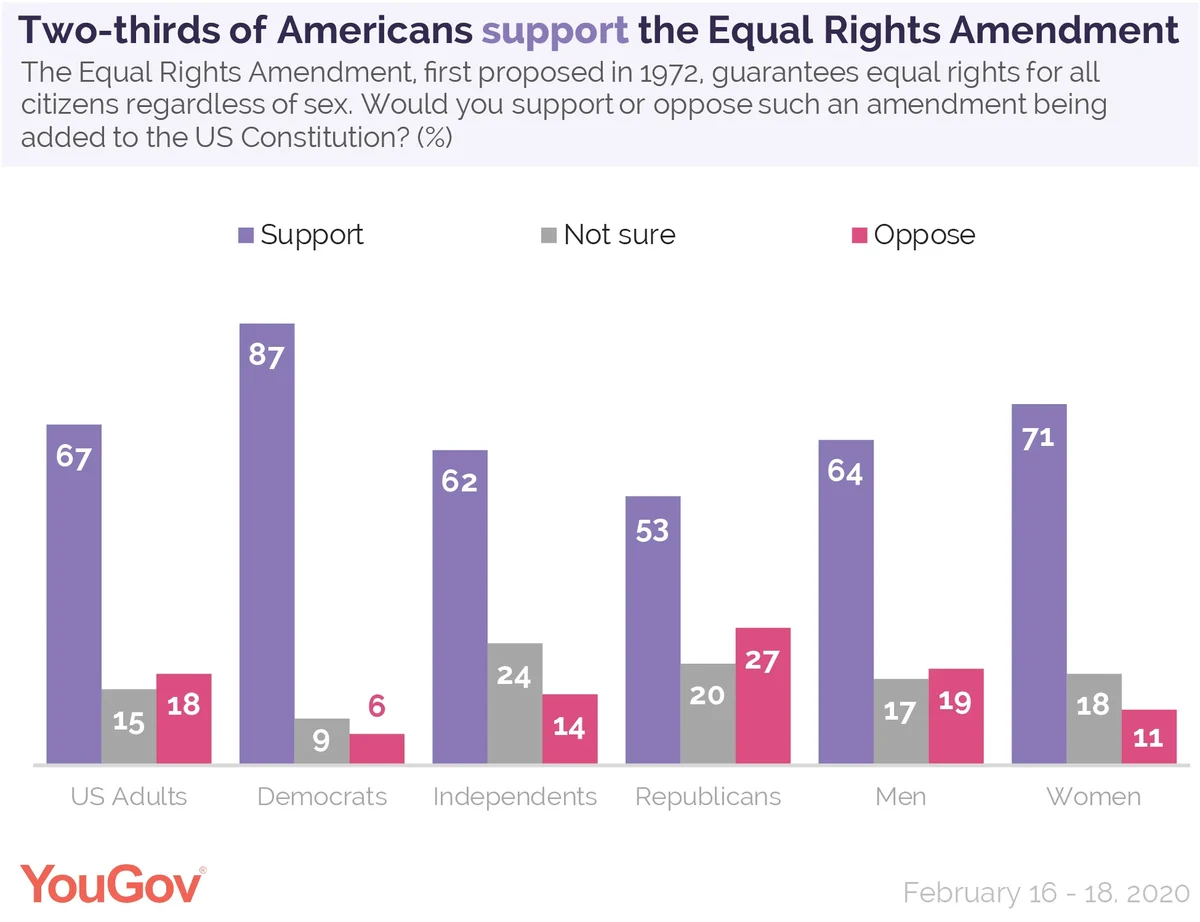Supreme Court Justice Ruth Bader Ginsburg suggested it may be time to start over on the Equal Rights Amendment, a constitutional addition granting equal rights to women. Virginia recently became the 38th state to ratify the amendment, but their decision came nearly four decades after the 1982 deadline set by Congress, making the future of the ERA uncertain.
Americans in the latest Economist/YouGov Poll, however, seem willing to allow for delayed ratification. They also express high levels of support for the Equal Rights Amendment.

Five states rescinded their earlier ratification of the amendment, putting what would be the 28th Amendment in a state of limbo, though Congress could act to extend the deadline (the House of Representatives passed an extension, but the Trump Administration has declared that the process must start over).
The ERA has been popular from the start, though support in polls (while still a majority) declined as the 1982 deadline neared. Support today is closer to the highs at the early stage of the ratification process in the 1970s. In the current poll, two-thirds (67%) believe ratifying the ERA is important to ensure that men and women are considered equal in the Constitution. About three in ten (29%) think an amendment is not necessary.
However, Republicans aren’t at all convinced that the deadline should be extended, as the House, voting mostly along party lines, did. But there are sizable gender gaps among Republicans: a majority (59%) of GOP women support the amendment, compared to about half (47%) of Republican men. Republican men reject allowing states to ratify after the deadline (42% to 36%) while GOP women would allow late ratification (42% to 33%). There is much less of a difference between Democratic men and women: both genders support the ERA and would allow late ratification.
Overall on most of these questions, men and women give similar answers.
As for starting over, four in ten Americans can’t decide whether that would be the right thing to do, though more approve than disapprove. Republicans are more likely than Democrats to approve of starting over (Republicans are in favor, Democrats very closely divided).
Those who oppose the Equal Rights Amendment are more likely than those who support it to say the process should be restarted.
There aren’t many Americans, male or female, who believe that the ratification and implementation of the Equal Rights Amendment will make a difference in their lives. However, nearly half of Democrats say it will make their own lives better – including 44 percent of Democratic men. Two in three Republicans think nothing will change for them personally.
About a third of those who support the Equal Rights Amendment see a personal benefit; about a third of those who oppose it believe their own lives will get worse if the amendment is ratified. Male opponents are more likely than women who oppose the amendment to see a personal cost: a quarter (25%) of women opponents think their lives will get worse with the ERA. By ten points more (35%), men opposing the amendment believe their lives will get worse with the ERA.
Related: America thinks President Trump tweets too much
Read the full toplines and crosstabs from this week’s Economist/YouGov poll
Image: Getty











